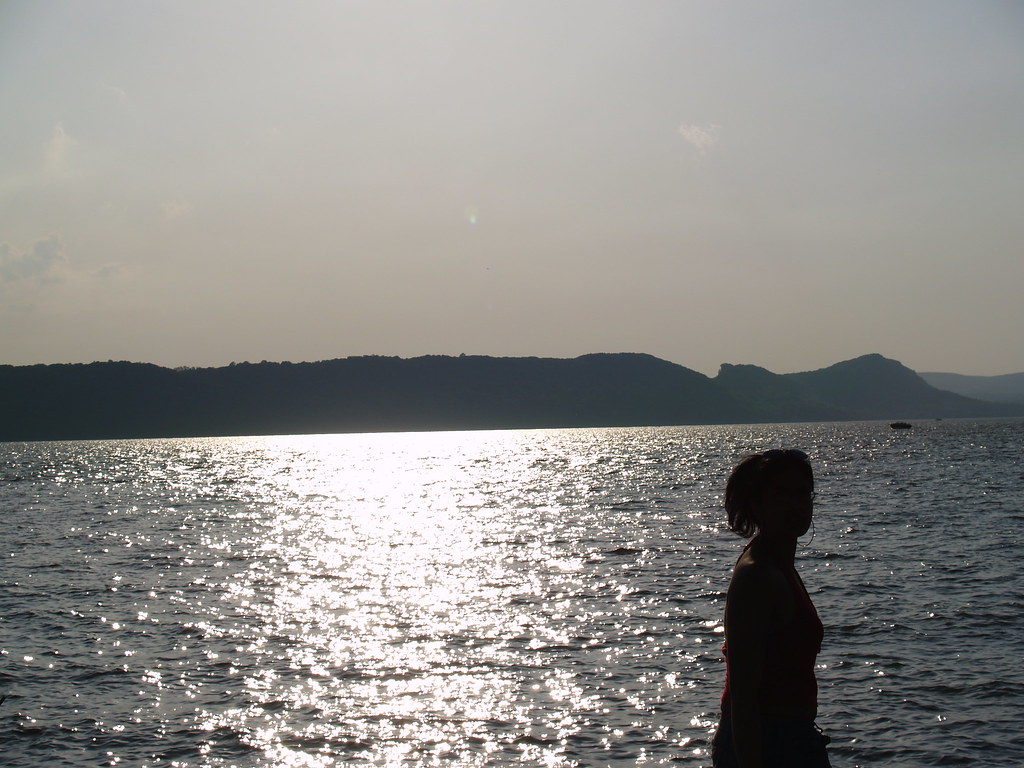
The street outside my oldest aunt's house in Bangladesh.
After reading this article about a plastic bag ban in Ireland (brought to my attention by my lovely Hannah), I thought about Bangladesh. And garbage.
Back in 1995, one of my clearest memories of Bangladesh was the overwhelming smell of garbage. The heavy heat of the summer plus the immense amounts of trash lying around in the streets created the deepest, strongest scent of rot. It felt like you were branded with that smell for days.
Afterwards, before we left for Bangladesh back in December, I read somewhere that Bangladesh banned plastic (polythene, as they call it) bags because of clogged drainage systems, in 2002. Instead, they have these neat netted bags and, of course, paper bags.
While the government thought ahead with the plastic bag ban, there is still no accountability for garbage in Bangladesh. The lack of garbage cans is to be expected. At my oldest aunt's house, I looked for a place to throw out a candy wrapper, but I couldn't find a garbage can. I asked my aunt where I should throw it. She took it and threw it off the balcony. This is where my mother picked up her habit from. Outside, the streets are filled with litter, just like in 1995, and every so often, as you drive, you see heaps of garbage along the roads. Poorer people pick through the piles, looking for anything that could be recycled, useful for themselves or sold for money.
On a similar note, in Dhaka, we were used to green-colored baby taxis, or autorickshaws. During an outing to Sonargon, I noticed more and more yellow-colored autorickshaws as we got further and further away from Dhaka. My cousin, Dola, pointed them out to me and told me that the government was going to ban them soon and replace them with the green autorickshaws. Why? The yellow autorickshaws ran on petrol, which contributed to Bangladesh's already horrible air quality. The newer, green autorickshaws run on compressed natural gas, or CNG.
These laws, along with the abundance of rickshaws and human-powered vehicles (walking carts, carrying cargo by hand, rowing boats (!!!)), would make you think that Bangladesh is well on its way to being a clean country, but you'd be wrong. Despite the CNGs and cycling in Dhaka, the streets were still clogged with cars and buses. The air was thick with smog and dust--I had a constant cough the entire time I was there. It took me a week to adjust to New York's cleaner air when I got back. Shocking, no?







4 comments:
i like that i make you think of garbage. and "baby taxi" still makes me laugh!
I remember when I went to visit India, the cities and villages were also very polluted. I've flown over maybe four times that I can recall. We mostly stayed in two big cities, Bombay and Surat. Surat is where my parents and their families are originally from. My dad's family stayed in Bombay while he was growing up, and since the planes take us there first, we usually spend some time there too. Bombay was always ridiculously crowded and garbage was everywhere. Surat is a smaller city, but it was dirty as well. The air was especially bad. We always got sick from it. The last time I went, in 2001, I noticed a huge change in them. Both Bombay and Surat were much cleaner than they had been before. Villages were still polluted, and compared to here, it's still pretty darn bad, but I felt like they were making changes for the better. My parents went in January, but I haven't had a good talk with them about how much it's changed since we last visited.
Thanks for your useful post. I agree that Population of Bangladesh
is too high. The increasing population creates pressure everywhere in our society.
Post a Comment